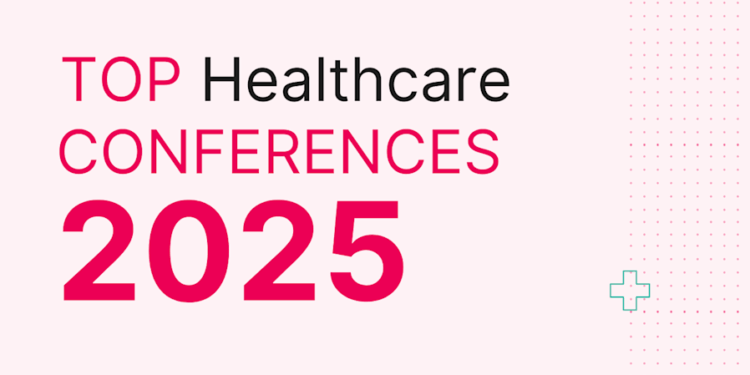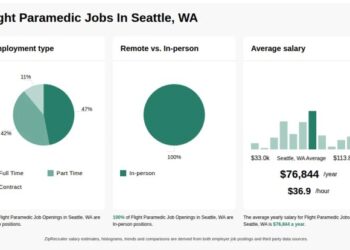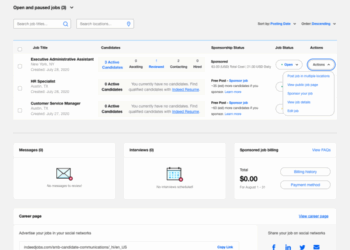Delve into the realm of healthcare careers in 2025 as we explore the top opportunities that lie ahead. This intriguing opening sets the stage for a thorough examination of the best healthcare jobs to pursue, promising a blend of insight and foresight for readers seeking to navigate this dynamic field.
The following paragraph will provide valuable information and insights on the current landscape of healthcare professions and the key trends shaping the job market in 2025.
Overview of Healthcare Jobs in 2025
The landscape of healthcare professions is constantly evolving to meet the changing needs of society. Healthcare jobs encompass a wide range of roles, from doctors and nurses to medical technicians and therapists. These professionals play a crucial role in caring for patients, promoting wellness, and advancing medical research.
Key trends shaping the healthcare job market in 2025 include technological advancements, an aging population, increasing demand for mental health services, and a focus on preventive care. As technology continues to advance, healthcare professionals will need to adapt to new tools and systems to provide optimal care.
The aging population will require more healthcare services, leading to a greater need for healthcare workers across various specialties. Additionally, the growing awareness of mental health issues will drive the need for more mental health professionals. Preventive care will also be a priority, shifting the focus towards keeping people healthy rather than just treating illnesses.
Importance of Healthcare Jobs in the Future Workforce
Healthcare jobs are crucial in the future workforce as they directly impact the well-being of individuals and communities. These professionals not only provide medical care but also educate patients on preventive measures, promote healthy lifestyles, and support overall wellness. The demand for healthcare services is expected to increase in the coming years, making healthcare jobs essential for maintaining a healthy population and addressing healthcare disparities.
As such, investing in healthcare education and workforce development will be vital to ensure a skilled and diverse healthcare workforce that can meet the evolving needs of society.
Technology Integration in Healthcare Jobs
Technology has revolutionized the healthcare industry, impacting various healthcare professions in significant ways. From artificial intelligence to telemedicine, technological advancements are reshaping how healthcare professionals work and deliver care.
Role of Artificial Intelligence in Healthcare Jobs
Artificial intelligence (AI) plays a crucial role in healthcare jobs by streamlining processes, improving diagnostics, and enhancing patient care. AI algorithms can analyze vast amounts of data quickly, helping healthcare professionals make more accurate diagnoses and treatment decisions. In addition, AI-powered tools can automate routine tasks, allowing healthcare workers to focus more on patient interaction and complex cases.
Telemedicine Changing the Way Healthcare Professionals Work
Telemedicine has transformed the way healthcare professionals work by enabling remote consultations, diagnosis, and treatment. With telemedicine, healthcare providers can reach patients in rural or underserved areas, improving access to care
. This technology also allows for better coordination among healthcare teams, leading to more efficient and effective patient outcomes.
Additionally, telemedicine has become especially crucial during global health crises, providing a safe and convenient way for patients to receive medical attention without the need for in-person visits.
In-Demand Healthcare Jobs
As the healthcare industry continues to evolve, certain healthcare professions are expected to be in high demand in 2025 due to various factors such as demographic shifts, technological advancements, and the increasing emphasis on preventive care.
Top In-Demand Healthcare Jobs in 2025
- Nurse Practitioners: With a growing emphasis on primary care and the aging population, nurse practitioners are expected to be in high demand to provide quality healthcare services.
- Physician Assistants: Physician assistants are projected to see a significant growth in demand as they can provide many of the same services as physicians, helping to address the shortage of primary care doctors.
- Physical Therapists: As the population ages, the need for physical therapy services is expected to increase, leading to a higher demand for physical therapists.
- Health Informatics Specialists: With the increasing use of electronic health records and data analytics in healthcare, the demand for health informatics specialists who can manage and analyze healthcare data is expected to rise.
Comparing Growth Potential of Different Healthcare Professions
While all healthcare professions are essential, some professions are projected to have a higher growth potential in terms of job opportunities and demand. For example, nurse practitioners and physician assistants are expected to see a faster growth rate compared to some other professions due to the increasing need for primary care providers.
Reasons Behind the Demand for Specific Healthcare Jobs
The demand for specific healthcare jobs can be influenced by various factors such as population demographics, advances in medical technology, changes in healthcare policies, and evolving patient needs. For instance, the aging population is driving the demand for physical therapists and nurse practitioners who can provide specialized care for older adults.
Similarly, the focus on preventive care and chronic disease management is increasing the demand for health informatics specialists who can help healthcare organizations improve patient outcomes through data analysis.
Specialized Healthcare Careers
Specialized healthcare careers play a crucial role in providing advanced and specialized care to patients. These roles require specific skills and knowledge to address complex medical conditions and deliver specialized treatments.
Emerging Specialized Healthcare Roles
As healthcare continues to evolve, new specialized roles are emerging to meet the changing needs of patients. Some of the emerging specialized healthcare careers include:
- Genetic Counselor
- Palliative Care Nurse
- Health Informatics Specialist
- Telemedicine Physician
Educational Requirements for Specialized Healthcare Careers
Specialized healthcare careers often require advanced education and training to ensure professionals are equipped to handle the complexities of their roles. Educational requirements may include:
- Advanced degrees such as a Master's or Doctorate
- Specialized certifications or licenses
- Ongoing professional development and training
Impact of Specialization on Job Satisfaction and Earning Potential
Specialization in healthcare can have a significant impact on job satisfaction and earning potential for professionals. By specializing in a specific area, healthcare professionals can:
- Enhance their expertise and skills in a particular field
- Provide more targeted and effective care to patients
- Increase job satisfaction by focusing on areas of personal interest
- Boost earning potential through specialized knowledge and experience
Epilogue
Concluding our exploration, this summary encapsulates the essence of the discussion on the best healthcare jobs to pursue in 2025, offering a compelling glimpse into the future of this vital industry.
Key Questions Answered
What are the educational requirements for specialized healthcare careers?
Answer: Educational requirements for specialized healthcare careers vary but often include advanced degrees or specialized certifications in the respective field.
Which healthcare jobs are expected to be in high demand in 2025?
Answer: Some of the top healthcare jobs expected to be in high demand in 2025 include nurse practitioners, physician assistants, and healthcare administrators.
How is technology impacting various healthcare professions?
Answer: Technology is revolutionizing healthcare by improving patient care, streamlining processes, and enhancing communication among healthcare professionals.











